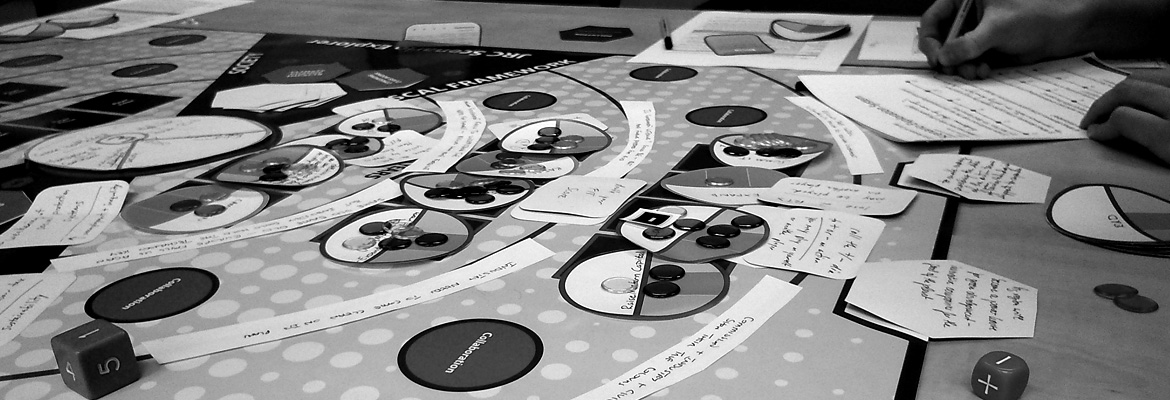Scenario
Observing and Scripting

In this module, DESIGN STATION is offering a workshop focusing on anticipation through scripting. This is the essential step before designing a system or a strategy with the capacity to adapt to new situations.
It is not a question of predicting the future, but rather of anticipating possible developments in order to prepare for them and consider the potential consequences for the company’s business model, with a view to feeding the strategic thinking process and guiding action.
In this module the participants will be engaged in systems thinking with a long-term perspective with the aim to explore alternative futures for specific problems. Exposed to a contextual and non-linear interactive scenario approach they will explore the different factors involved in scenario building.
METHOD :
The workshop is based on the Scenario Exploration System (SES), a serious game platform developed by the European Commission’s Joint Research Centre.
DESIGN STATION has developed its version with the aim of engaging learners in a role-playing simulation to develop the mindset and skills needed to position themselves in a context of increasingly complex ecological, economic and societal tensions.
The game methodology provides a solid understanding of sustainable development through an interactive process based on the integration of a holistic and contextual vision into the long-term strategies of different societal actors.
OBJECTIVE
To rethink and question the creative thinking of designers and to understand the challenges of the contextual scripting process.
Scenario Exploration System Workshop - 1 day (7 hours).

Morning 9am - 12pm
- State of play and key to understanding the context
- Intrinsic and extrinsic fragility of modern society
- Contextual analysis grid
- Diagnosis: from a static to a dynamic approach
- Scenarios: From linear to non-linear scenarios
- Process & Examples
Q&A
In plenary session:
OBJECTIVE: To prepare the specific scenario exploration session
- Define the "focal question" or questions to be addressed in the scenario process
- Select two contrasting scenarios
- Analysis and understanding of the overall and specific context
- We identify and explore a number of elements of change and driving forces that could affect our future:
In plenary session:
OBJECTIVE: Setting up the specific scenario exploration session
- Definition of roles
- Distribution of elements
- Creation of the exploration community
- Creating the context for the scenario exploration
Afternoon 2pm - 5pm
In group sessions:
OBJECTIVE: To develop the exploration of the scenario
- Round 1: We are now in the first time horizon
- Round 2 : We are now in the second time horizon
- Round 3: We are now in the third time horizon
Conclusion: At the end, the Scenario Exploration Master summarises the exploration of the scenario, and asks the scenario explorers to evaluate how successful they have been in achieving their long-term goals
In plenary, we dissect the driving forces and try to reach a consensus on which ones represent the most critical uncertainties that will affect how the future landscape will change.
- Back to the working teams.
- Assignment: drafting scenarios for your interest group.
Based on these findings, a set of non-linear but plausible scenarios can be constructed that could emerge, depending on the different ways in which these critical uncertainties could possibly evolve or be resolved over time.
The outcome of the day will be a scenario developed for each interest group. A summary booklet will be produced by Design Station and sent to participants in digital form.
- We discuss and define the key features of each scenario as applied to each team's interest group.
- Each working team then develops a 'to do' list (potential actions, strategic initiatives or innovations) that you could undertake to improve your chances of success in each scenario.
- Finally, we try to identify any signposts that might appear over time, indicating that a particular scenario seems to be emerging, rather than one of the others.
